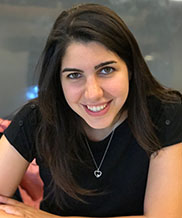Human-Robot Interaction through the Lens of Learning and Control
The mediaX webinar series “Thinking Tools for Wicked Problems” continues with Dorsa Sadigh, an assistant professor in Computer Science and Electrical Engineering at Stanford University. Machine learning and control theory have made substantial advances in the field of robotics in the past decade. However, there are still many challenges remaining when studying robots that interact with humans. This includes autonomous vehicles that interact with people, service robots working with their users at homes, assistive robots helping disabled bodies, or humans interacting with drones or other autonomous agents in their daily lives. These challenges introduce an opportunity for developing new learning and control algorithms to enable safe and efficient interactive autonomy.
In this talk, Dorsa will discuss a journey in formalizing human-robot interaction. Specifically, she will first discuss developing data-efficient techniques to learn computational models of human behavior. I will continue with the challenges that arise when agents (including humans and robots) interact with each other. Further, she’ll argue that in many applications, a full computational human model is not necessary for seamless and efficient interaction. Instead, in many collaborative tasks, conventions —low-dimensional shared representations of tasks — is sufficient for capturing the interaction between agents. She’ll conclude the talk with challenges around adapting conventions in human-robot applications such as assistive teleoperation and collaborative transport.
Presenter

Dorsa Sadigh is an assistant professor in Computer Science and Electrical Engineering at Stanford University. Her research interests lie in the intersection of robotics, learning and control theory. Specifically, she is interested in developing efficient algorithms for safe, reliable, and adaptive human-robot interaction. Dorsa has received her doctoral degree in Electrical Engineering and Computer Sciences (EECS) at UC Berkeley in 2017, and has received her bachelor’s degree in EECS at UC Berkeley in 2012. She is awarded the NSF CAREER award, the Google Faculty Award, and the Amazon Faculty Research Award.